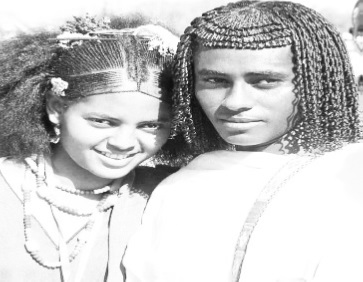
BY MENGISTEAB TESHOME
Ethiopia is an ancient country with exceptional cultural and traditional values, indigenous knowledge and practices.
These indigenous wisdoms have been employed by the communities for different purposes and situations. Among these, the indigenous disputes resolution mechanism, which is used to prevent, deal with and resolve conflicts that may arise between and among communities, is the one.
This customary mechanism has been exercised for long to manage the various types of conflicts, sustain peace, maintain social solidarity and strengthen ties and social cohesion within and outsides of the society.
Jille Tumuga Woreda, is one of the woredas located in the Oromia Special Zone, the Amhara State, Northeast Ethiopia. The Woreda is situated 265 kms far from Addis Ababa and 616 kms away from Bahir Dar City.
Of late, Amhara and Afar States had been engaged in resolving conflicts that had been sustained in the northern east part between communities in Jille Tumuga Woreda, Senbete Town and Afar. Consequently, the confrontations resulted in the loss of life, injury and properties damage on the two peoples.
However, through the consorted efforts of religious leaders and elders, the two nations had been able to enjoy peace for some time though could not sustain for long due to various reasons.
In an exclusive interview with The Ethiopian Herald, Jamal Hassan, Chief Administrator of Jille Tumuga Woreda, said that 13 years ago there were conflicts that resulted in loss of life and damage to the proprieties from both sides. “However, through consorted efforts of religious leaders and elders, the two communities had started enjoying peace for some time though could not sustain for various reasons.
He noted that, the causes of the conflict between these communities are multidimensional and complex. Competition for resources such as grazing lands, pasture and water are amongst others.
Jille Tumuga Administration is keen to resolve this dearth through creating common understanding among the two parties. “even if we face challenges, we will work arduously along with designated religious peoples and elders and go through the realities on the ground both in Afar and Oromo communities to ensure peace.”
As he stated, over the past three weeks, they have under taken productive activities and come up with incredible results that led them to organize three day peace conference.
Both have agreed to conduct three important activities, one is bringing individuals who were involved in the crime, bring them before the law, and preach the values of peace among communities to preserve and sustain peace.
Three hundred elders and religious people from both sides are chosen to take part in the conference, engaged in dialogue- how the two communities could deescalate disagreements, resolve and arrest disputes in their day to day activities and maintain more peaceful environment for both groups.
“We are one nation and we all are Ethiopians. We should not kill each other for matters that could be resolved through dialogue. Because we have our own social capital, we should apply it to resolve differences and halt conflicts before they escalated and get out of hand.”
“We facilitate this conference because it meant a lot for us. We want to prosper together rather than creating insecurity threats and uncertainty concerns.”
Needless to say that development and peace are the two sides of the same coin. Experiences suggest that integrating peacebuilding into national development requires multiple interventions, parti cipatory approach and consultative method to link community from local to national level perspectives; thereby create a sense of ownership which can contribute to the sustainability of the interventions.
Peace-building cannot be achieved by a simple paperwork. “Thus, we urge for coordinated efforts and call on pertinent stakeholders to work hard to ensure its sustainability,” he remarked.
Ahmed Asegid, Jille Tumuga Woreda Communication Bureau Head on his part noted that, religious leaders, elders and the youths drawn from all districts and beyond attended the gatherings.
The discussion has opened great opportunities for the peoples living in the area and beyond in strengthening further the value of peace among the two peoples, and it is believed to have greater importance in nation building.
“We have suffered a lot because the conflicts arose in various times among the two peoples. We want to build peace using our social capitals, and nurture love, fraternity and tolerance among the peoples.”
‘Peace’ is intuitively obvious at a human level, but seems very vague and distant to those defining policy, project or business outcomes. So, one of the challenges is to identify simple, practical and recognizable indicators of progress towards peace which are relevant for economic promoters. We have felt and seen the pain and the scare that sustained, but this is the time to stop the ordeal of fellow citizens.”
Underlining the role elders and religious leaders play in managing scarcities peacefully and preserving peace, he said that the challenges should be addressed in the spirit of brotherhood and tolerance to beat conflicts, backwardness and other constraints to social change.
The Ethiopian Herald March 31/2021





